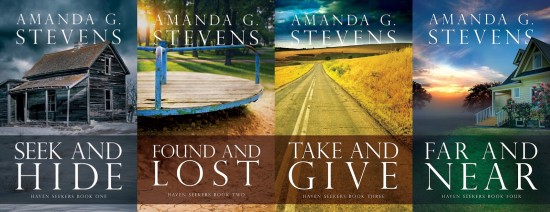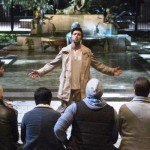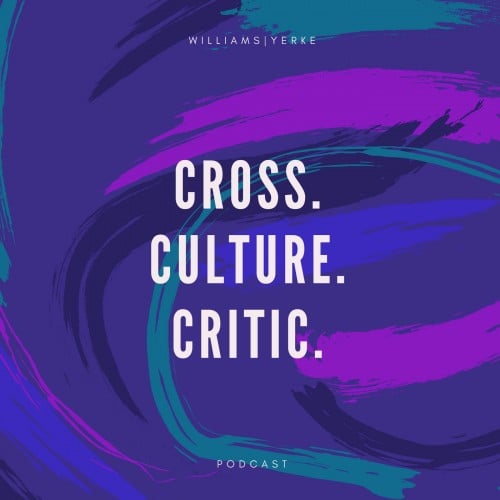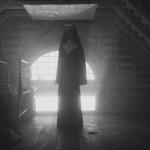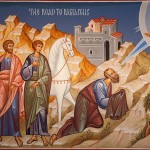There’s enough bad Christian art out there and more than enough snarky writing about it — much of which, admittedly, I’ve been guilty of. Lost in that discussion, however, are the Christian artists who are producing strong work and working to change the cultural conversation. This is the first part of what I hope becomes an ongoing feature on this blog: conversations with these artists and discussions about how Christian art can grow and improve.
Full disclosure: I’m friends with author Amanda G. Stevens. Years back, we attended the same church and were even in the same writers’ group for awhile. It’s been years since those days, though, and I’m happy to interview her for this blog as a professional author.
Amanda has written Haven Seekers, a four-part series of dystopian novels set in a world where Christianity has been outlawed. But rather than use the story to grind axes or wallow in a persecution narrative, she uses it as a launching point for a tale of wonderfully drawn, vivid characters. The series takes its twists and turns, and Amanda’s got a penchant for brutal reversals (I may have emailed her and called a monster at one point), but it’s the characters and their inner lives that are the most memorable. The relationship between Marcus and Lee is one of the most complex, moving and realistic I’ve seen in Christian fiction, and characters like Aubrey, Violet and Austin are also carefully, lovingly rendered. Most stirringly, she takes a subgenre that could (and often has) be defensive and angry, and instead creates a warm tale of relationships and the importance of Christian community.
I believe good art can be made to exhort, encourage and provoke Christians. And good art can be made about Christians without being specifically for them. Haven Seekers is a series that straddles both lines, and I’m eager to see what Amanda does next. I’m excited to share this interview with you.
Back in our writer’s group in 2009, I remember that you were invested in this series. Where did the idea come from, and how long have you been living with these characters?
The first version of this series looks nothing like what it became, but if I count that version, I’d have to say I began writing Haven Seekers in 2004. (Oh my…) I began with two characters (Marcus and Lee) who, in author vernacular, “wouldn’t shut up.” My mind kept unearthing new details of who they were: I knew the worst moment of Lee’s life (which happened when she was eighteen); I knew Marcus was an alcoholic (sober now but still wrestling). I knew a hundred things about them but had no plot. Over time I determined the best story to uncover their layers would be some sort of war or conflict in which they were resistance fighters. But now what—Underground Railroad? French Resistance in WW2? Historical fiction, are you kidding? That’s one genre I can’t write; I’d be terrified of committing an anachronism. My only option then was to create my own world.
While the subject of religious persecution plays a role, this never plays as persecution porn. At its core, it’s a story about Christians trying to maintain their faith in a world where they’re seen as enemies. The books don’t necessarily end with big conversions or lessons. Was that always the intent?
In a word, yes. I write to explore people—their inner selves, their relationships to one another and to God. The people are the first thing that come into my head when I create, and the plot is molded by their decisions and the consequences of those decisions. I throw conflict at them to see what they’ll do with it. I have no “lessons” in mind whatsoever, although of course my worldview shows up the same as any fiction author’s does.
Haven Seekers doesn’t traffic in bombed-out buildings and barren landscapes. Instead, this feels more like a spiritual dystopia. Are you a fan of dystopian fiction, and did you set out to avoid the “Mad Max” world and keep the setting more familiar?
Haha, I have to own indolence on this one. I used suburban America because that’s where I live, and in this case “write what you know” seemed prudent, because setting is not one of my writing strengths. Now that the series is written, I’m pleased with the result of this choice. And yes, I read dystopian, but I don’t necessarily look for it. I look for realistic characters; I’ll read them in any genre.
Christian art and literature has a reputation of being “safe for the whole family,” – something I’d argue is actually not a very Christian way of looking at life. Your books are decidedly not “safe,” in that you’re not afraid to tackle issues that I don’t see in much Christian fiction. Characters die, and some characters have traumatic pasts. Were you ever surprised by the places the story took you? What guided you as you decided whether a development might be seen as too dark or too much?
I never paused over the darkness of the story. I simply wrote what happens to the characters and tried to be honest about how much life hurts sometimes and how hard it can be to recover, “even” for the Christian. That was important to me from the beginning of the writing process. The fourth book especially is about healing, and I wanted a full book for that because anything less would not have done justice to the characters’ hardships or, in my opinion, to the hardships that my readers might be experiencing themselves.
And yes, I was surprised often. Too many times to count! Usually by character reactions. Once by a character’s identity.
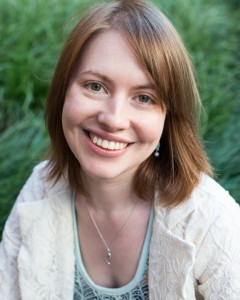
Were you ever afraid readers might not be willing to go to these places? Did you ever receive any notes from editors telling you it might be wiser to change certain things?
My editor was wonderful. I was never asked to change big story content, not once, and my agent never asked for that either in the days when we were shopping the series. As for readers, I knew not everyone would follow me to the dark places. Many of the negative reviews for my books say so, and I have to be okay with that. Some people read fiction to escape reality, some to experience reality more fully, and some choose to escape or to experience based on factors in their own lives at the time they pick the next book to read. I’m a reader who always wants to experience reality, so that is the kind of fiction I offer. If fellow readers choose to travel the story-roads I pave, I’m honored.
One of the things that struck with me with this book is the love you have for your characters. You use certain techniques to create characters that don’t feel cliché; I feel like I know them, warts and all. This might be a loaded question, but how did they take shape? Did you base them off anyone you knew?
No, lol, a thousand times no, I do not base my characters on people I know. That is, like everyone else in the world, I know stubborn people; but Marcus’s version of stubbornness and how that molds the story is all his own, and I didn’t make him stubborn because I know stubborn people. He’s stubborn because he’s Marcus.
How I create a character—I prevent stereotypes by creating contradictions in their souls. I dig deep into their pasts until I know not only what they do, but why. And I pepper them with unique individualities: what music and food does she enjoy, where does he feel most relaxed, what does she do with her body when she’s nervous, what would he rescue from his house if it was on fire? As for how I know these things … that’s hard to describe because there’s a level of intuition to it that makes no sense to someone who isn’t a writer. Stephen King says a writer “unearths” as if he is brushing dirt off dinosaur bones. Other authors say it’s like having a conversation with the character and allowing him to tell you who he is. We won’t count how many times I have told my critique partner, “Marcus lied to me again … I have to rewrite the whole scene because he won’t do any of that stuff I thought he would.”
What was your process like? I know you’re part of critical groups – how many passes would you say this went through?
The first book, Seek and Hide, was fully scrapped twice, started over from word one. That one took the longest, because I was actively learning how to write a novel, reading craft books and applying new information all the time. I think I counted twenty-five editing drafts before I had an agent. My critique group is invaluable; there are four of us, and we trust each other to be brutal when needed. We are there for each other in life and in writing. They usually look at one of my manuscripts twice before my agent sees it—a rough draft they can all shred, and then an edited draft.
I love editing. It’s a game to see how many extraneous words I can cut. I adore word economy (believe it or not from this interview) and aspire to improve at it as long as I’m a writer (which will be as long as I’m alive). I’d rather edit than face the blank page.
This isn’t a series with a message, in that it ends with a call to salvation or a conversion.But Haven Seekers is very much about the importance of Christian relationships. Is that something you were focused on, or did that come about through the writing?
That happened organically as the story was written. Typically, I finish a manuscript with no idea what my “big themes” are, and I ask my critique group what themes they see in it. When someone identified Christian community as a theme of Haven Seekers, I was thrilled with that.
You’re likely very familiar with the perception of most Christian art. Was there anything you were consciously trying to stay away from —pitfalls associated with the genre — as you wrote?
My first inclination was to write for the general market. I didn’t want to write a “Christian novel” for the very reasons you’re hinting here. But I couldn’t write this story without the Church at the center of it, without the Gospel at the center. Once I recognized that, I simply wrote the books and hoped that, despite their violation of a lot of the “tried and true” fiction formulas, they would get picked up by an agent and publisher anyway. In God’s kindness, He gave me this desire of my heart.
How do you feel you grew as a writer? Is there anything you feel you’re stronger at now that you’ve gone through it?
My agent will tell you my skin has thickened by miles since the first time she gave me story edits on Seek and Hide. And yes, I think (hope!) my writing improves as I work at it and as I write more books. If I had to point to something specific, it would be the ability to tighten scenes and recognize when an unneeded scene must be cut (even though I’m attached to it).
How did it feel to see the completed series on your shelf for the first time?
Honestly? Bittersweet. I did not want to part ways with Marcus and Lee and I hope I haven’t forever.
Aside from seeing your work in print, what’s been the most gratifying part of this experience?
Sometimes I get tagged on Twitter or Facebook by a reader posting a review that expresses enormous love for my characters and says they feel like real people, like friends. Nothing is more gratifying than hearing the characters I love are also loved by someone I’ve never met. This is my hope for all my stories: that readers will love my characters enough to follow them through the dark to the sunrise.
What do you wish we saw more of in Christian literature? And, as someone who is involved in that genre, what are some misconceptions that others might have about it?
I would love to see a wider choice of genre, which has slowly begun over the last few years but hasn’t hit its stride yet. And I would love to see more series that allow a single character to grow over multiple books, rather than moving on to a new character with every book (which technically should be called a collection, not a series, but we often use those terms interchangeably). If I could have a series written just for me, I would ask somebody brilliant to write a deep, gritty series about a Christian detective who wrestles organically with faith and good and evil while solving his cases and grows in his relational life too. Noir is one of my favorite genres.
As for misconceptions, there’s an evolution going on right now in which some Christian novels are nudging the borders of what was always considered “safe” (to use your word from earlier). It’s challenging for publishers and readers alike, because people can have such varying definitions of safe/clean fiction, and because expectations have been cultivated for years that certain publishers produce certain books. I’m interested to see where the industry goes from here.
Are you working on anything now? Do you see your work continuing in speculative fiction, or are there other genres you might pursue?
I’m writing a new book—new cast, new everything. Probably a series since I love series and I already have ideas about the sequel. The storyworld is contemporary, but my main character has been living with a secret that is decidedly science fiction. I’ll probably write spec always, because every story in my head has altered reality in some way—usually a small way. I don’t picture myself ever writing high fantasy or space opera. Probably all my characters will reside in a world a lot—but not exactly—like this one.
You can purchase the Haven Seekers series at Amazon. Visit Amanda’s website for updates and info on future projects!

